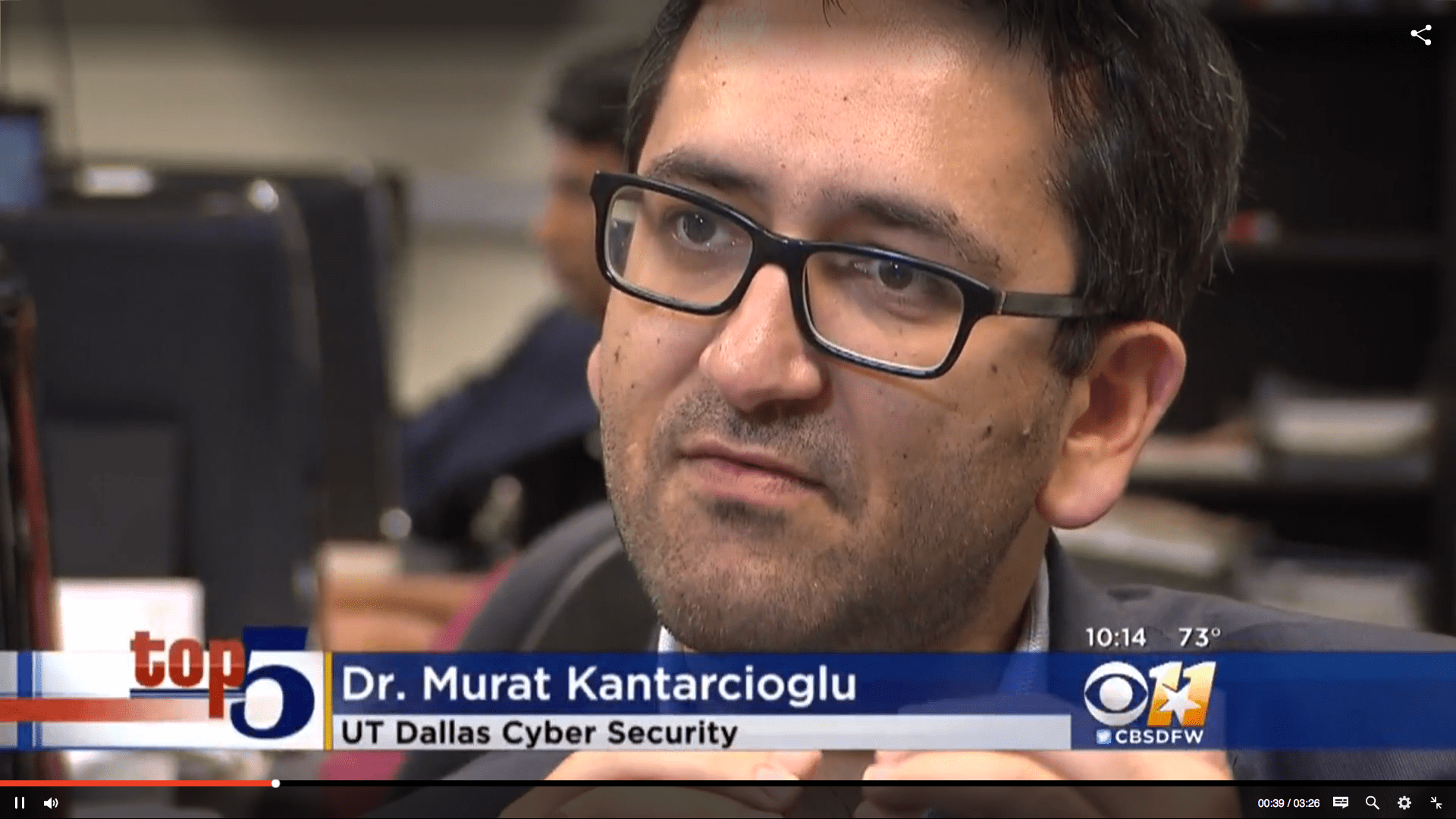
DALLAS (CBS11) – Even if you try, it’s nearly impossible these days not to have a footprint online, which means everyone is a potential target for hackers looking to steal identities and clean out bank accounts.
“We are very vulnerable,” said Dr. Murat Kantarcioglu, a cyber security expert at the University of Texas at Dallas. “Being aware of these kinds of attacks and always verifying and limiting what you disclose will make it less risky for you.”
Here’s the Top 5 new threats to your personal information and how to protect yourself:
1. Juice jacking
Plugging your phone into a public phone charging station could compromise all your data. The reason is the same cables that you use to charge your phone can also be used to transmit data. Security experts say it’s easy for a hacker to manipulate these charging cords and steal your personal information right off your phone. Public charging stations are growing in popularity at places like airports, shopping malls, college campuses and hospitals.
2. Fake hotspots
You may think you’re logged onto to the coffee shop’s free Wi-Fi hotspot, but it might be a fraud and the hacker behind the fake hotspot could potentially see everything on your screen. Distinguishing which hotspots are fake can be very difficult. This is why security experts say when using free Wi-Fi for email, only log onto secured pages with a “https” in the address. Experts also recommend not to do online banking or send sensitive work emails from a free hotspot.
Being aware of these kinds of attacks and always verifying and limiting what you disclose will make it less risky for you.
Dr. Murat Kantarcioglu, Director of Research at the UTD Cyber Security Research and Education Institute and Associate Professor of Computer Science at UT Dallas
To continue reading the rest of the article by CBSDFW’s BRIAN NEW please click here. You may also view the entire interview with Dr. Kantarcioglu on CBSDFW’s website.
CYBER SECURITY PHD STUDENT AND RESEARCH ASSISTANT, VIPIN SINGH SEHRAWAT, COMMENTS ON BITCOIN’S SECURITY TO WALLETHUB
Via WalletHub – Introduced in 2007, bitcoin is the first decentralized currency. Bitcoin couples blockchains with a decentralized, pseudonymous, distributed consensus protocol, dubbed Nakamoto consensus. This enables bitcoin to provide verifiable transactions, secure against double spending attack. It is estimated that there would be over 5 million active bitcoin users by 2019, and that by 2030 it will be the sixth largest reserve currency.
Recently, bitcoin rapidly gained popularity, and hence the frequency and complexity of the hacking attempts also intensified. If user’s bitcoins are stolen, then it is tricky to recover them because bitcoin transactions, once written in the blockchain, are irreversible. High impact attacks on big names like Bitfinex, Coinwallet and Bitstamp dented bitcoin’s reputation to some extent. The natural question after multiple successful attacks is, “is bitcoin safe?” — and the short answer is yes!

But the security depends on multiple factors like responsible user behavior, bitcoin exchanges’ security standards and practices, and bitcoin miners’ honesty. None of the attacks on bitcoin wallets and exchanges defeated blockchain or the core bitcoin algorithm. Instead, irresponsible user behavior and/or sloppy security practices of the bitcoin exchanges were exploited.
We are not implying that bitcoin has no security flaws. Bitcoin relies heavily on socioeconomic factors and it is imperative for the correctness of the algorithm that majority of the bitcoin miners behave honestly. This requirement of bitcoin has been exploited to develop some “theoretical attacks,” most of which have impractical requirements. For example, temporary block withholding is a powerful attack but requires that the attacker controls at least a third of the mining power. As bitcoin becomes more widespread it might come under more pragmatic and powerful attacks from big players. One such attack, called altcoin infanticide, has been observed to be successfully carried out by bitcoin miners against new competing currencies with low mining capacity. Also, as the stability and correctness of the system relies on the miners if majority of them collude, then all bets are off. We cannot completely discard the possibility of such attacks, especially with the current policy of cutting down the mining rewards.
All successful bitcoin hacks till date occurred due to either the users not following the recommended security practices or the exchange platforms getting compromised. In the latter case, sometimes exchanges had enough funds to recover from the hack. For instance, Bitstamp lost 18,866 BTC from its hot wallet due to a phishing attack but it recovered from the hack. Social engineering attacks (e.g., phishing) and getting around outdated security practices like 2FA (2 Factor Authentication) remain the most popular attacks.
Bitcoin exchanges are continuously improving security by adding innovative features like cold wallet and multi-signature. In conclusion, bitcoin is still secure against all pragmatic attacks and will likely stay that way, but as is true with any security protocol — all parties involved in the protocol, i.e., bitcoin exchanges and the end users — must follow the recommended security practices.
Source | WalletHub
ABOUT THE UT DALLAS COMPUTER SCIENCE DEPARTMENT
The UT Dallas Computer Science program is one of the largest Computer Science departments in the United States with over 2,100 bachelor’s-degree students, more than 1,000 MS master’s students, 150 PhD students, and 86 faculty members, as of Fall 2016. With The University of Texas at Dallas’ unique history of starting as a graduate institution first, the CS Department is built on a legacy of valuing innovative research and providing advanced training for software engineers and computer scientists.




